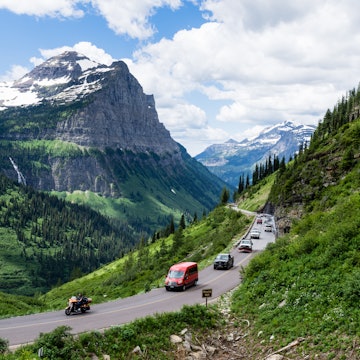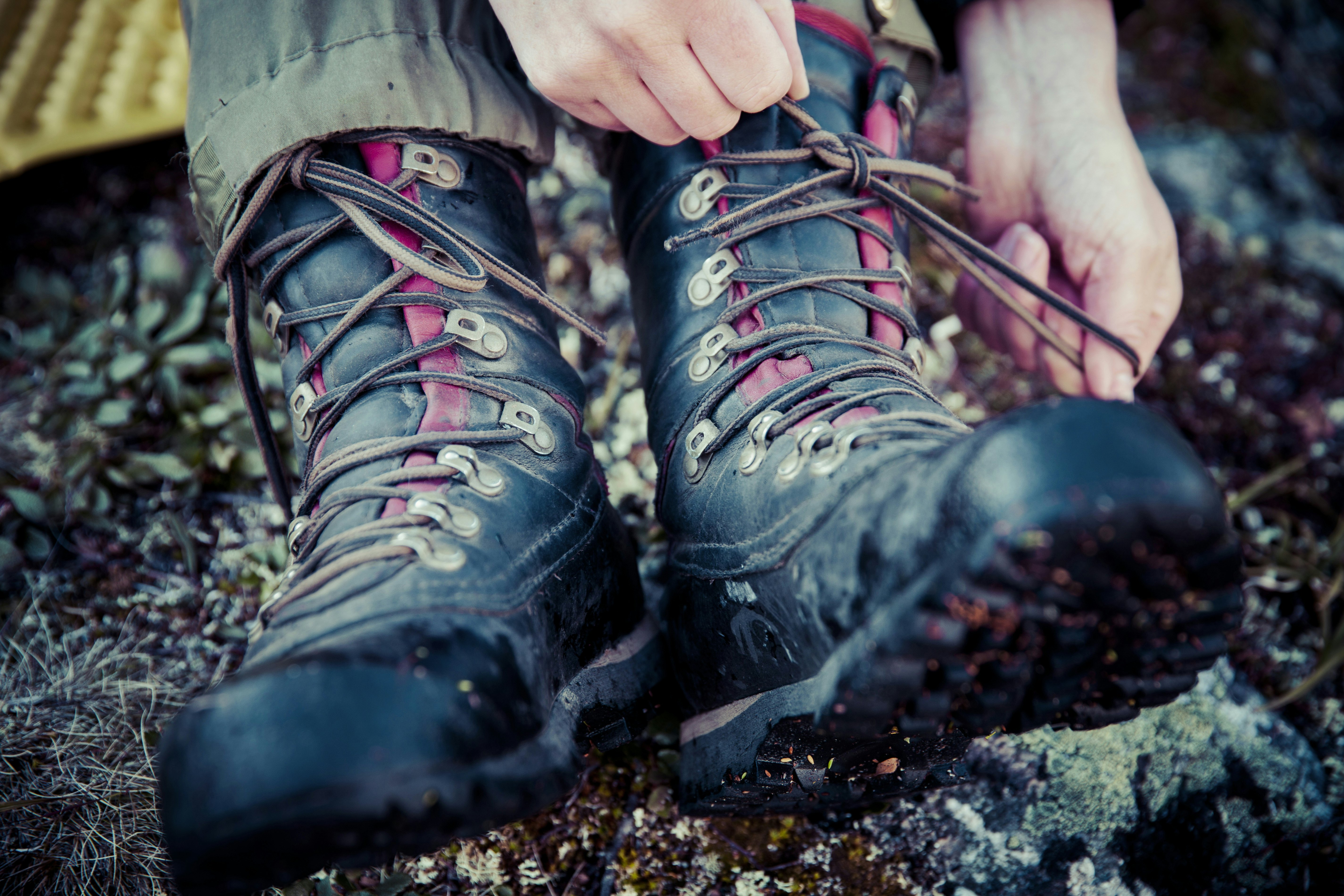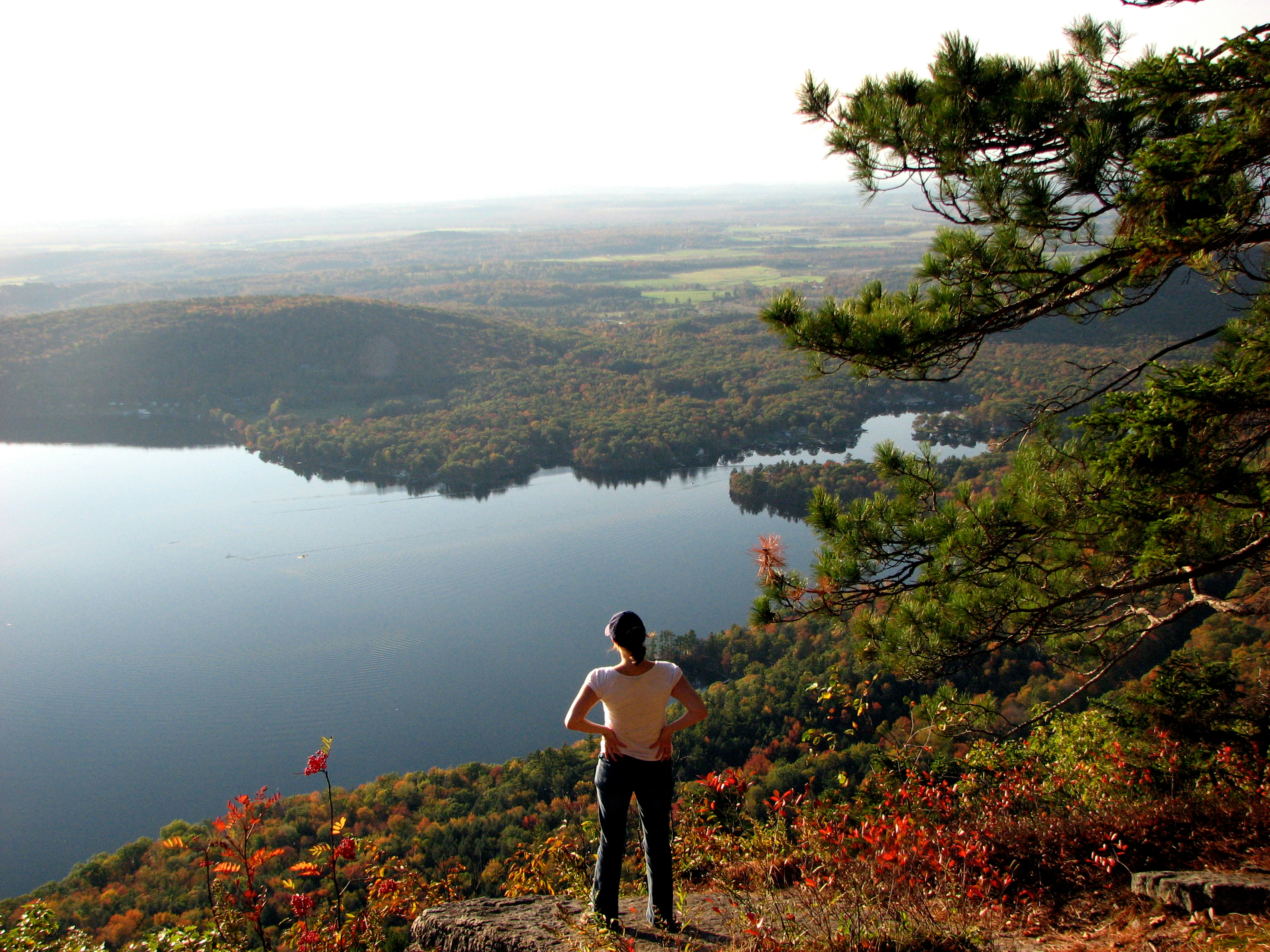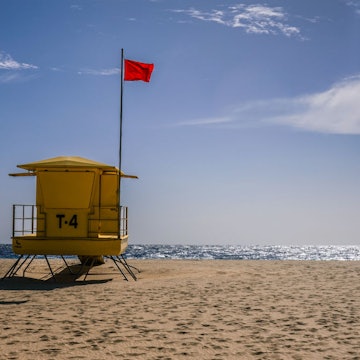

Heading out for your first hike? Avoid making these mistakes © imageBROKER / Alamy Stock Photo
Hiking and camping are great ways to get outdoors. And adventures on foot can be as big and remote or tame and close-to-home as you want them to be. With basic gear, a game plan, common sense, and some research, you can discover the joys of being in the company of nature.
1. Don't start off too fast
Keep stress low by hiking near where you live. Start with a shakedown hike that takes two hours or less. Then, if you want a challenge, lace up for a hike with some elevation. Build hiking fitness, and make sure your gear is dialed before you decide to thru-hike Vermont’s Long Trail or start bagging Colorado 14ers.
2. Avoid hiking alone
Having company when you hike can make it more fun. It can also be safer. If you twist an ankle, for example, there’s someone to help. Whether you go solo or with a partner, be sure to let a friend or family member or two know where you’re going and when you expect to return. When you’re back in civilization, make sure you let them know.
3. Don't overpack
For day hikes, you need the basics, including water, food, a small first aid kit with emergency blanket, emergency water treatment, a knife, and an extra layer. A heavy pack will weigh you down and make hiking less fun. Plan for a half-liter of water every hour, more if you sweat a lot, or if it’s very hot out.

4. Don't skip over buying quality hiking boots /shoes and socks
If your feet feel good, there’s a much better chance you’ll have a great time. Wear high-quality merino socks or synthetic hiking socks, not cotton. Buy boots that fit your feet well in the shop. Take a couple of hikes close to home to break them in before you head out for a big trip.
The best new outdoor gear for your adventures in 2020
5. Avoid using your cell phone for directions
Deep in the mountains, you may not have cell service, and electronics can run out of juice before you get back to your car. If you want extra security, buy a tracker, like Garmin’s InReach Mini, so you can send a satellite message if you get in trouble.
6. Don't be afraid to invest in key equipment
For hiking, the most important investments are your socks and shoes. A good backpack will support your load, be sized for your adventure, and fit your body. For day hikes, carry a small pack with a hydration reservoir or easy access water bottle pocket. Staying hydrated is key to hiking success. Ask your local outdoor shop to help you fit your pack.
If you’ll be out for more than a few hours, buy a water filter or a chemical water treatment and learn how to use it before you leave home. For camping, add a sleeping bag, sleeping pad, and a tent to your list of gear to buy or borrow. Ask your local shop for recommendations that fit your budget. If you want to cook when you’re camping, you’ll need a camp stove too.
We tested seven new gadgets that will upgrade your camping experience

7. Don't forget to test out equipment before you leave
Don’t wait to get to camp to set up your tent, or try out your stove. Set up everything at home to make sure it works, and that you have all the parts and pieces you need. You’ll figure out what, if anything, you can leave behind, and make sure it all fits in your pack.
8. Know what poison ivy looks like, and what to do if you see a bear
Every area has hazards. Know what they are where you’ll be hiking, and how to deal with them. Avoidance is usually the best strategy. With poison ivy, that’s knowing what it looks like and staying away. With bears, that’s cooking away from your campsite, and hanging your food in a bear bag, as well as having bear spray on hand for emergencies.
9. Leave no trace
Always follow the seven principles of Leave No Trace. Plan to pack out all your trash. Check local regulations where you plan to hike to see if you also need to bring a system to pack out human waste. Don’t camp close to streams, lakes, or rivers. Don’t cut down trees or vegetation for any reason. Rule of thumb: whatever you’re thinking about doing, imagine if 1000 other people did the same how it would impact the place.
How to be sustainable on your hiking trip

Best places to take your first hike
Get to know a nearby state forest, wilderness area, or national park. Almost all have easy or moderate routes. Many have trip planning tools as well. Once you get off the heavily traveled trails near park headquarters, plan to be on your own until you get back to your car. Know how to be self-sufficient in the environment you’re in by having the proper gear, including water treatment, a map and a plan.
Outdoor life hacks
Beat the bonk
Ever heard of bonking? It’s when you don’t eat enough and don’t drink enough, which then results in grumpiness, inability to move one step further, and hatred of the activity you’re doing until you get some food and water. Your hiking partners will thank you if you take the necessary steps to avoid this. Set your watch or phone alarm, and have a bite and a sip every hour, and more frequently if you feel hungry or thirsty.
If you feel like you might be getting a blister, you're getting a blister
Stop where you are, remove your boots and socks, and put on some moleskin or second skin. If you catch a blister when it’s only a hot spot, you’ll have a better day.
Drink water for sore muscles
If hiking is a new activity for you, your muscles won’t be used to it. Drinking water will help flush out the soreness, and you’ll feel better sooner.
Dry your gear
There’s no worse camping experience then unfurling your tent to mold and mildew. Dry any gear you might not use for a while before packing it away. Also replace any missing parts, like a lost tent stake, ASAP.
You might also like:
The best state parks in each state
What it means to Leave No Trace: 8 principles to be more mindful outdoors
10 unforgettable experiences in US national parks














